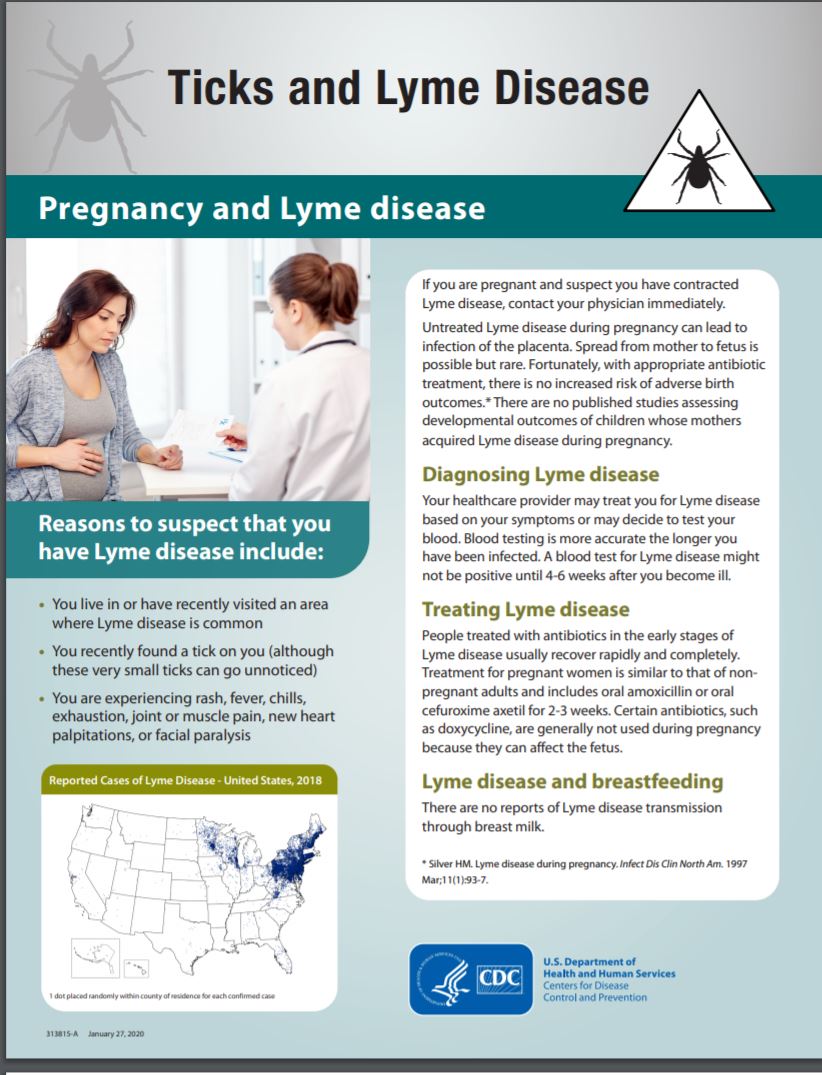TOUCHED BY LYME: CDC allows “possibility” of mother-fetus Lyme transmission

It’s bad enough to have Lyme disease yourself. But a mother’s realization that she has passed the illness to her children during pregnancy brings a special kind of heartbreak.
This is all made worse by the fact that medical authorities have for years insisted that maternal-fetal transmission of Lyme disease is a non-issue.
Five years ago, in our book “When Your Child Has Lyme Disease: A Parent’s Survival Guide,” my co-author and I challenged the following quote from the CDC website:
“Lyme disease acquired during pregnancy may lead to infection of the placenta and possible stillbirth; however, no negative effects on the fetus have been found when the mother receives appropriate antibiotic treatment.” (Italics are mine.)
The CDC’s approach is problematic on so many levels. In much of the country, it is (still!) difficult for anyone—pregnant or not—to get properly diagnosed and promptly treated for Lyme disease. There has been virtually no research on pregnant women with Lyme disease and/or what happens to their children afterwards. So, who knows what constitutes “appropriate antibiotic treatment” for pregnant women?
And, importantly, many women (and their doctors) don’t even know they have Lyme while pregnant. So, the question of “appropriate treatment” doesn’t even come up.
“Possible, but rare”
Now, the CDC has relented a bit. As of last week, the agency slightly softened its language on this topic to say that maternal-fetal transmission is “possible but rare.”
They put the new wording in three places on their website.
Under the section on Transmission, if you click on where it says, “Other ways to get Lyme disease,” you’ll see this:
Untreated Lyme disease during pregnancy can lead to infection of the placenta. Spread from mother to fetus is possible but rare. Fortunately, with appropriate antibiotic treatment, there is no increased risk of adverse birth outcomes. There are no published studies assessing developmental outcomes of children whose mothers acquired Lyme disease during pregnancy.
(Hey, CDC. You admit there’s no published data on what happens to kids in these cases. So, how do you know there are no adverse effects? And how do you know it’s rare?)
The CDC repeats this language on the Lyme Disease FAQ under the question “I am pregnant and think I have Lyme disease, what should I do?”
And on the CDC poster which I’ve put at the end of this blog.
So, where does this leave us?
The CDC’s minor acknowledgement of the “possibility” of mothers passing the illness to their unborn children falls woefully short of effectively addressing this issue.
Two Canadian women, Sue Faber and Jennifer Kravis, and their organization LymeHope have done much to shed light on this topic. See their website for lots of information and documentation about gestational Lyme.
Read Sue Faber’s recent comments to the Tick-Borne Disease Working Group: Maternal-fetal Lyme transmission must be acknowledged–and researched.
TOUCHED BY LYME is written by Dorothy Kupcha Leland, LymeDisease.org’s Vice-president and Director of Communications. She is co-author of When Your Child Has Lyme Disease: A Parent’s Survival Guide. Contact her at dleland@lymedisease.org.





















We invite you to comment on our Facebook page.
Visit LymeDisease.org Facebook Page